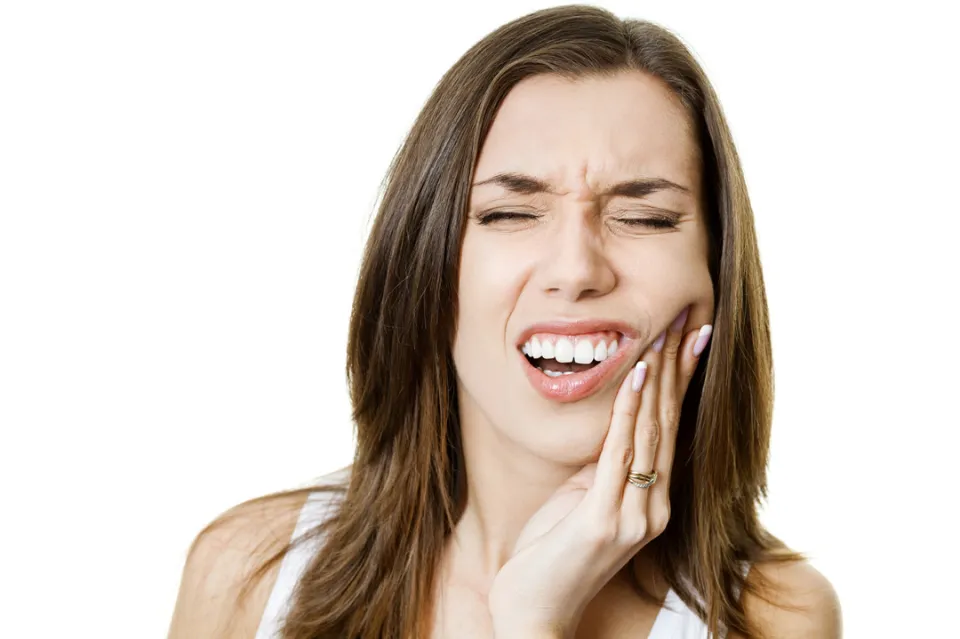
Why Does Your Tooth Hurt at Night – How to Get Rid of It
During the night, do your tooth hurt? When you go to bed, do you suddenly experience tooth pain even though you’re otherwise perfectly fine during the day? It’s not necessary to learn how to go to sleep with a toothache.
The position in which we sleep is primarily to blame for toothaches being more painful at night. Additionally, consuming hot, cold, acidic, or high-sugar foods late at night may also irritate your teeth.
What Are the Most Common Causes of Toothaches at Night?

Toothaches vary greatly from one another. They have various forms of pain with numerous causes. Finding the cause first is the only way to try to treat a toothache.
Here are some of the most common toothaches:
Cavities
One of the main reasons people get toothaches is cavities. In essence, a cavity is a hole that develops in your tooth as a result of poor oral hygiene practices or an unhealthful diet. Read More: Can Cavities Cause Headaches
The discomfort may be mild to severe and may result in tooth sensitivity.
Read More: How Common Are Cavities
Periodontal Disease
This is an infection of the gums or other supporting tissues that are located around your teeth. Plaque bacteria are the cause, so if poor oral hygiene is not practiced, plaque will accumulate and bacteria will spread to the gums.
Gum swelling, reddening, and tenderness are possible symptoms of this infection. Including bleeding and potential erosional symptoms like pus.
Damage

Depending on the extent of the injury, a cracked, broken, or chipped tooth from trauma can cause mild to severe tooth pain. If the crack is not visible, other symptoms include pain when chewing or when exposed to extremes of heat or cold.
Sinusitis, Ear Infection Etc.
The pressure that builds up just above the roots of your molar teeth is what causes toothaches brought on by sinus infections. Your teeth, as well as your jaw and the side of your face, become sore as a result of pressure being applied to the dental nerve endings.
Tooth Nerve Pain Aka Pulpitis
It’s possible that you have pulpitis if your tooth pain is severe and gets worse at night.
When an infection or tooth decay penetrates past the enamel and into the pulp, which is made up of blood vessels and nerves, pulpitis results.
A buildup of pressure inside the tooth’s root canal results from the inflamed, swollen, and infected pulp. As a result, the nerves and blood vessels are compressed, resulting in a tooth that is in excruciatingly sharp pain.
Immediately after being diagnosed, pulpitis must be treated by a dentist.
Why is Tooth Pain Only at Night?

When you’re attempting to get some shut-eye, do your teeth seem to hurt more? You must learn how to stop tooth pain quickly if you want to get any rest at all. It is unpleasant to have excruciating tooth pain and trouble sleeping. If not, you’ll be tossing and turning while feeling miserable and will likely feel even worse when you wake up the following morning.
Our blood pressure can actually increase when we lie down to sleep. You might think it would do the opposite, which is odd. However, that raised blood pressure can then exert pressure on the teeth’s nerves and blood supply, making it worsen every time you go to bed. For this reason, many oral surgeons and dentists will advise you to sleep with your head elevated following surgery or tooth extraction.
Have you ever noticed how much worse your sinus pain is at night? They go hand in hand and are comparable to tooth pain. There is a good chance that your teeth will hurt if you lay down at night and experience increased sinus pressure and congestion.
Not just at night can someone experience tooth pain. Any time during the day, teeth pain could be caused by an abscess or cavity. However, if you are frequently preoccupied during the day, you might not be aware of the minor discomfort until you are attempting to get some sleep while dealing with a toothache.
What Can You Do to Make the Tooth Pain Go Away?

A nighttime toothache that won’t go away is the worst. However, using these straightforward home remedies, which are listed below, you can get rid of it and have a restful night’s sleep. To avoid needing dental care, always have a thorough dental examination. A severe and potentially fatal tooth infection can develop. Once a tooth’s nerve has been infected by bacteria, no amount of home treatment will be able to heal it; you will need to see a dentist. Additionally, anyone who has mouth swelling needs emergency medical attention.
- Change Sleeping Positions: The intensity of the pain can be reduced by sleeping with your head elevated on a high pillow, which can prevent pressure from blood flow into the mouth.
- Clove Oil: The anti-inflammatory and pain-relieving effects of clove oil are well known. Clove oil should be applied to the affected area with a cotton ball until the pain subsides. The clove can also be chewed for 20 to 30 minutes to relieve pain.
- Saltwater Rinse: Warm saltwater rinses (one teaspoon of salt to eight ounces of water) can be very soothing if you have infected or swollen gums that are causing your tooth pain. Do this frequently, about five to six times daily. Pain will be lessened as a result of this helping to clean infection or wound sites.
- Cold Compress: Repeatedly applying an ice pack or cold compress to the affected side of the face or jaw for 10-15 minutes on and then off again may help reduce pain.
- Follow Good Oral Hygiene: Make sure to floss and brush your teeth at least twice a day, preferably right before bed. Together, these two dental hygiene routines can help remove food particles that may be causing you pain.
You need to be examined by a skilled dentist because these home remedies can only give you short-term relief. Your dentist will be able to quickly assess your symptoms and schedule an emergency visit for you if you let them know what is going on.
Read More: How Much Toothpaste Should You Use
Conclusion
There is usually a reason for tooth pain. Your toothache may flare up at night due to an infection, a trauma of some kind, or an underlying condition. You must visit a dentist because dental infections, such as gum disease and cavities, cannot heal on their own.
Avoid going to the dentist and don’t wait for your tooth pain to go away. Dental infections typically progress deeper into teeth or surrounding structures, complicating matters. It is best to take care of them as soon as possible, while they are still as small (and reasonably priced) to fix. Make an appointment for a checkup with your dentist right away if you haven’t been in for one recently. Avoid crossing your fingers and wishing for better circumstances. Your dentist must take care of them if they are to work.
FAQs
Why Does a Tooth Hurt More at Night?
More blood is able to rush to your brain when you’re lying down to sleep. The pain in your teeth will be worse than if you were standing because of increased blood circulation. The painful tooth is under pressure as a result of the increased blood flow.
Why Does My Tooth Hurt When I Bite Down at Night?
The minuscule channels in the roots of your teeth allow stimuli to reach the tooth’s nerve center when the dentin layer beneath them is exposed. Foods that are too hot, cold, or acidic can hurt you when they contact your nerves. Having sensitive teeth may explain why biting down causes pain in your teeth.
How Long Do Toothaches Last?
A tooth nerve pain can typically last anywhere from a few days to 4-6 weeks, or even longer in some cases. You need to take all necessary steps to relieve the pain as soon as possible given the potential for numbness and sharp pain associated with a tooth nerve.





Average Rating